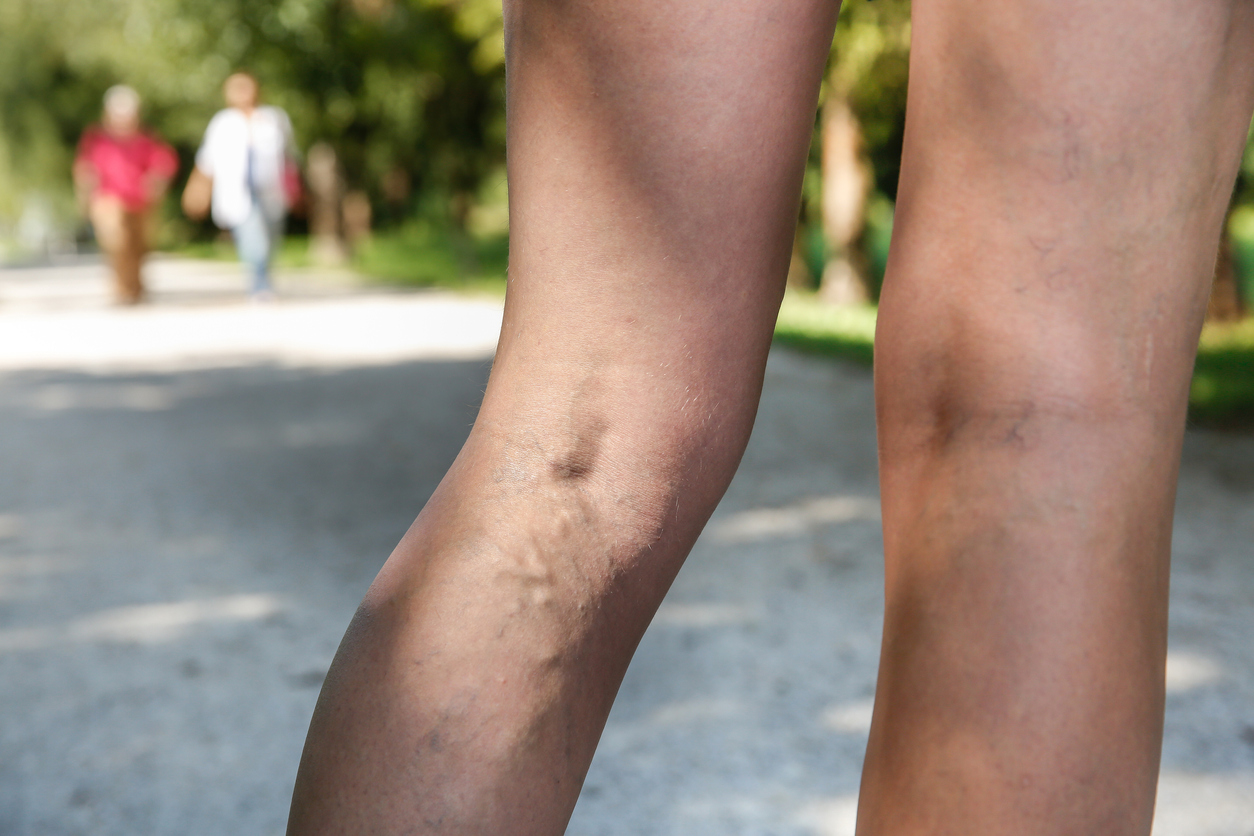
Although vein surgery is often permanent, for some patients, varicose veins can return even after treatment.
Today’s therapies for varicose veins are considered safe and effective, yet the twisting, protruding ropes sometimes reappear on the legs and feet years after initial treatment. If you’ve undergone varicose vein treatment only to have them return you may wonder what happened. In fact, varicose veins may occur even after surgery due to a few factors.
According to a 2012 study, 60 percent of patients treated for varicose veins experienced a recurrence five years following treatment. A 2014 study noted a high rate of recurrence in patients who were treated with thermal ablation due to the emergence of perforator veins that connect deep and superficial veins. Because of that connection, blood flows between the two veins.
These studies underscore the need to discuss with your vein specialist the right treatment for your individual situation so you can be permanently free of varicose veins. But first, let’s review the reasons varicose veins might return.
Table of Contents
ToggleWhy Varicose Veins Recur
Varicose veins emerge because of dysfunctional valves in the leg veins. Responsible for pushing back blood from the extremities to the heart, these tiny valves can over time become less effective at pumping blood upward. This leads to venous reflux that allows blood to collect within the vein walls. The overburdened vein pops out from under the skin in jagged blue and purple lines — varicose veins. Varicose veins might not cause other symptoms, but some may experience swollen, painful legs that feel heavy. Many people seek treatment when the appearance and discomfort impact their quality of life.
Treatments aim to cut off the blood supply to the damaged vein by injecting the vein with a substance that irritates the vein walls, forcing them to close. Sclerotherapy, as this treatment is known, is one of the most common treatments for spider veins, small or medium-sized varicose veins.
Other methods include endovenous laser therapy, during which the heat from a laser is directed at the vein to shrink it. Another therapy, reserved for larger varicose veins, is microphlebectomy — which removes the vein through two small pinhole incisions, thereby lessening the chance of a recurrence. Newer treatments such as VenaSeal use a medical adhesive to seal the vein shut.
For the vast majority of patients, these treatments permanently eliminate unsightly and painful varicose veins. However, as noted previously, you may see a recurrence based on one of four factors, such as:
- Heredity. Some people have a genetic predisposition to develop varicose veins. That means, even after successfully treating your varicose veins, the veins are more likely to come back in the future. If you have a family history of varicose veins, your vein specialist will detail your treatment options and provides tips for managing your vein health, as with other chronic conditions.
- “Hidden” Varicose Veins. Not all varicose veins are visible. Consequently, only the varicose veins seen by the naked eye may be treated, leaving some malfunctioning veins untreated. Unless treated, those veins eventually rise up as varicose veins. To detect any “hidden” veins damaged by venous reflux, a vein specialist will perform a duplex ultrasound to monitor blood flow in your legs.
- The Treated Vein Reopens. In some cases, a vein can recanalize, meaning blood surges again in a previously collapsed vein. In addition, after surgery you may grow new blood vessels that could become varicose veins.
- New Risk Factors Emerge. Like heredity, certain risk factors increase your chances of developing varicose veins. Even though you had your varicose veins successful treated at one point in the past, if you become pregnant or gain weight, varicose veins may develop again.
Treating Varicose Veins
Varicose vein treatment has a very high rate of success. But to achieve permanent results, you may need more than one treatment visit or a combination of therapies. At the Vein and Vascular Institute, we evaluate each patient’s condition and needs and create a treatment program to banish varicose veins forever. Contact us today for an appointment.
